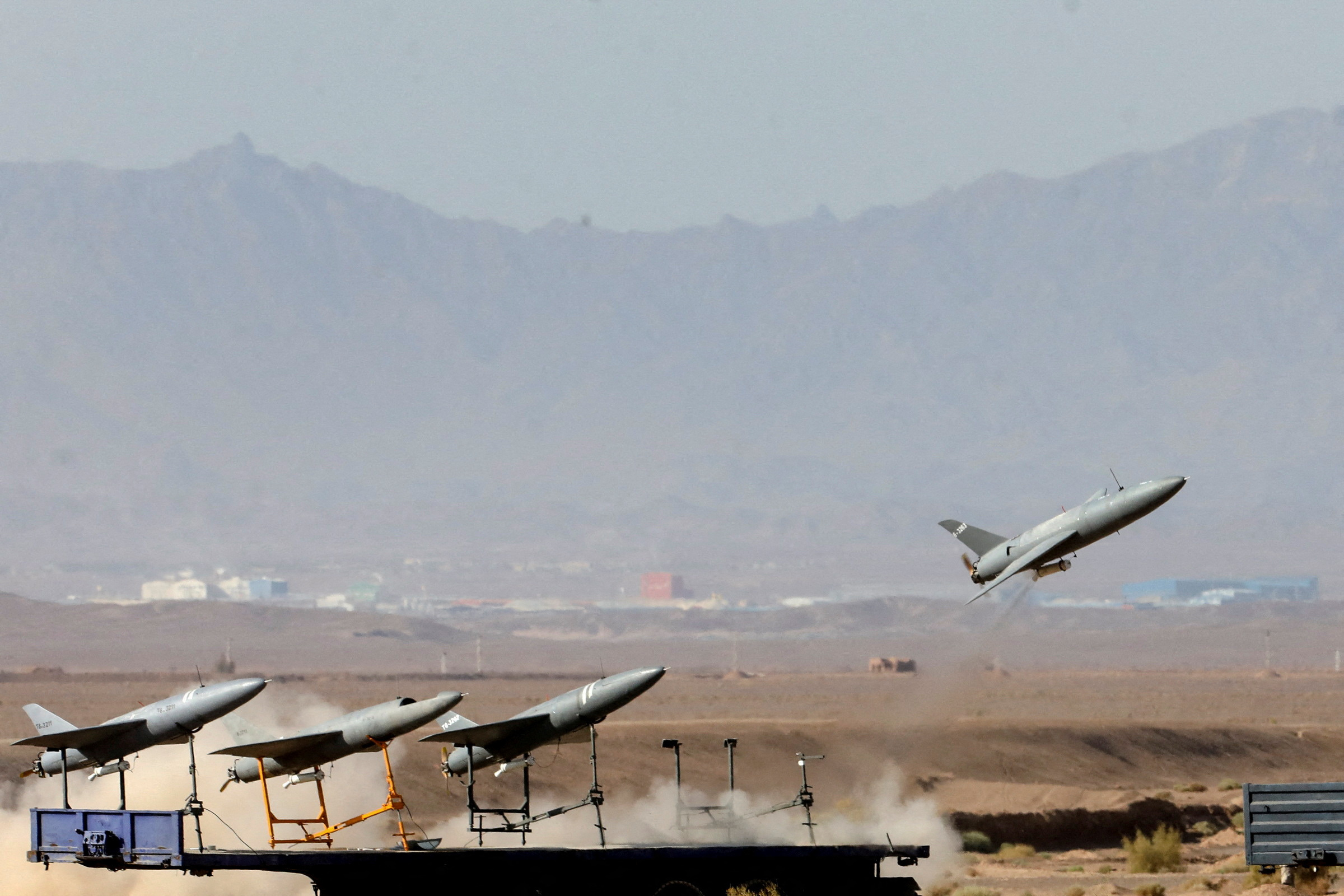
Chris Lange, FISM News
[elfsight_social_share_buttons id=”1″]
The White House said on Thursday that Iranian troops are now ‘directly engaged on the ground’ with Russian forces in Crimea, supporting Russian drone attacks on Ukrainian power stations and other critical infrastructure to inflict misery on civilians as winter weather sets in.
“The information we have is that the Iranians have put trainers and tech support in Crimea, but it’s the Russians who are doing the piloting,” National Security Council spokesman John Kirby told reporters at a White House press briefing.
He added that the Biden administration is considering imposing new sanctions on Tehran to increase pressure on the Iranian government to stop selling weapons to Russia.
U.S. intelligence sources revealed this summer that the Kremlin was buying Iranian-made drones to use against Ukraine. Since Oct. 10, Russia has used the so-called “kamikaze” drones, along with Kalibr and Iskander cruise missiles, in a series of consecutive attacks on Ukrainian infrastructure and non-military targets. President Volodymyr Zelenskyy said on Thursday that 30% of Ukraine’s power stations have been destroyed within the past two weeks.
Kirby said that Iran has dispatched a “relatively small number” of Iranian Revolutionary Guard Corps trainers to Crimea to help Russian troops launch the drones.
Russia has increasingly turned to Iran and North Korea in a quest to restock dwindling supplies of ammunition and precision-guided munition stocks amid punishing Western sanctions.
The deepening ties between the Kremlin and Iran, in particular, have heightened global concern beyond Washington. FISM reported this week that Israel’s government is now facing mounting pressure to provide more serious assistance to Ukraine in light of the troubling development. Fearful of disrupting its delicate strategic relationship with the Kremlin concerning Syria, Israel has repeatedly denied Kyiv’s requests for advanced air defense systems, though it has provided humanitarian assistance to Ukraine.
Iran has denied selling its munitions to Russia.
Russia and Ukraine bracing for major battle in Kherson: report
The Associated Press reported on Friday that Russian and Ukrainian troops appear to be preparing for a major battle in Kherson, a strategic port city in Ukraine’s south that Russian President Vladimir Putin formally annexed this month. Putin on Thursday declared martial law in the city, as well as in other annexed territories, in an effort to block a slow but powerful Ukrainian counteroffensive. Moscow has already replaced pro-Russian civilian leaders in the region with military officials to respond to the Ukrainian resistance.
With a pre-war population of nearly 300,000, Kherson was one of the first Ukrainian cities to fall to Russia following its Feb. 24 invasion and is the largest city the Kremlin holds. The major river port and key industrial region is a prime target for both sides.
Reports of sabotage and the assassinations of Moscow-installed officials in Kherson by Ukrainian resistance fighters have been surfacing for months.
Russia finds way to circumvent gas cap
Russia has found a way to skirt a G7 price cap, Reuters reported. U.S. officials and other industry experts told the news service that Russia can likely access enough tankers to export most of its crude and refined product exports beyond the reach of the cap, which represents the most ambitious plan to date to slash Moscow’s wartime revenue.
A U.S. Treasury official who spoke to Reuters on condition of anonymity estimated that Russia will be able to move 80-90% of its oil outside of the capping mechanism, which would mean that only one or two million barrels per day of Russian crude would be impacted.
The Group of Seven countries agreed last month to cap Russian oil sales at an enforced low price by Dec. 5 following months of discussions between the U.S. and global oil industry leaders who expressed concern that the action could cripple worldwide trade. Now, all involved parties are facing the stark reality that Russia can use its own ships and services to skirt the cap.
